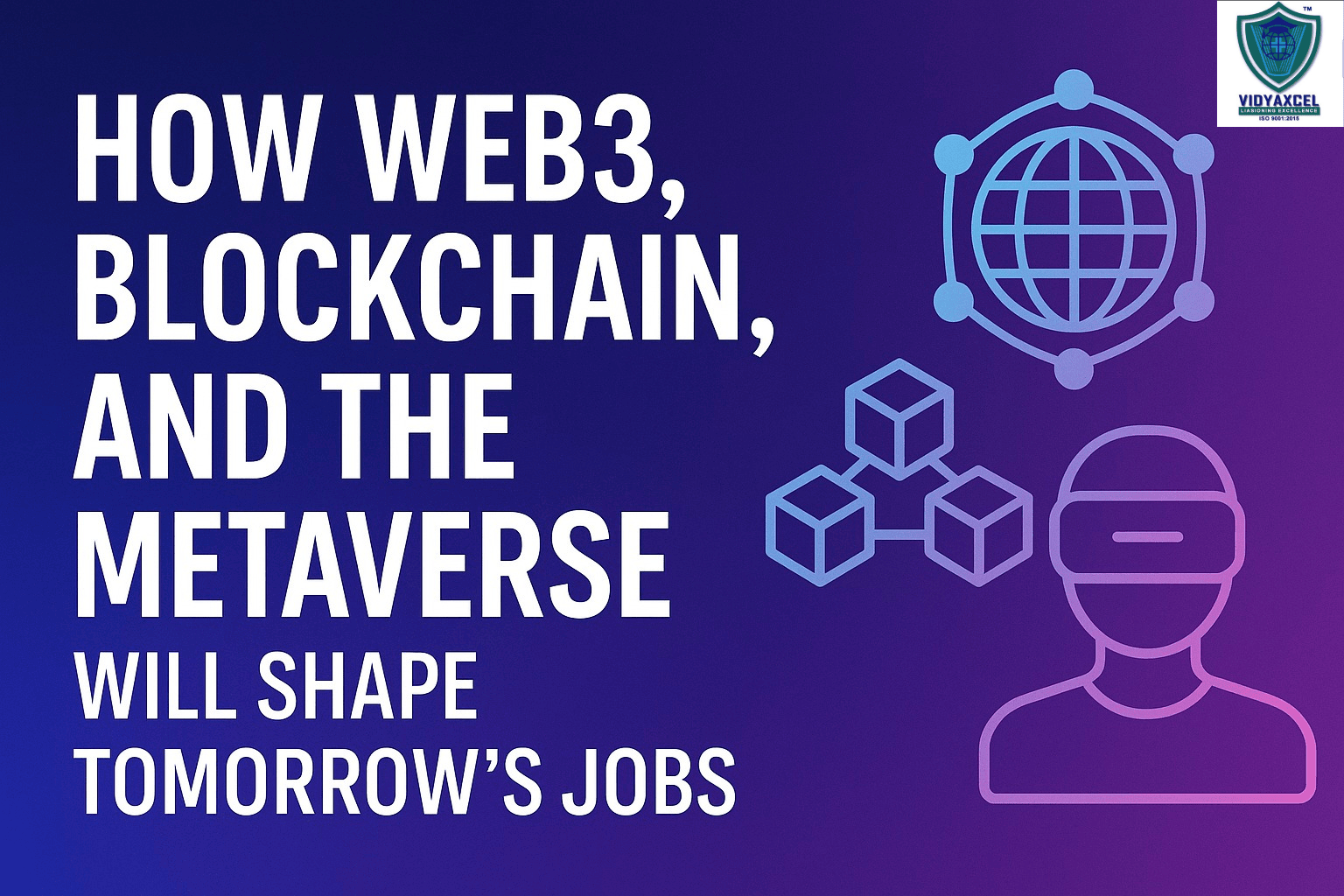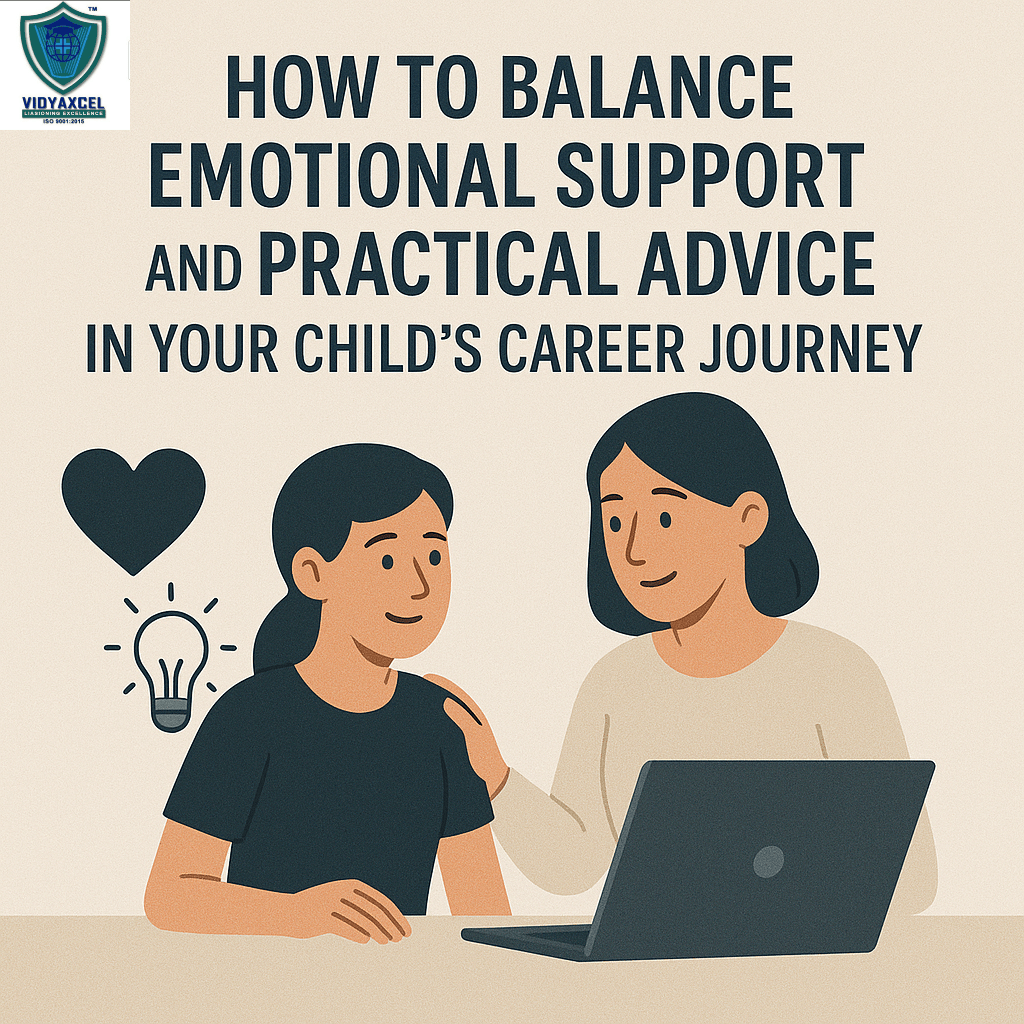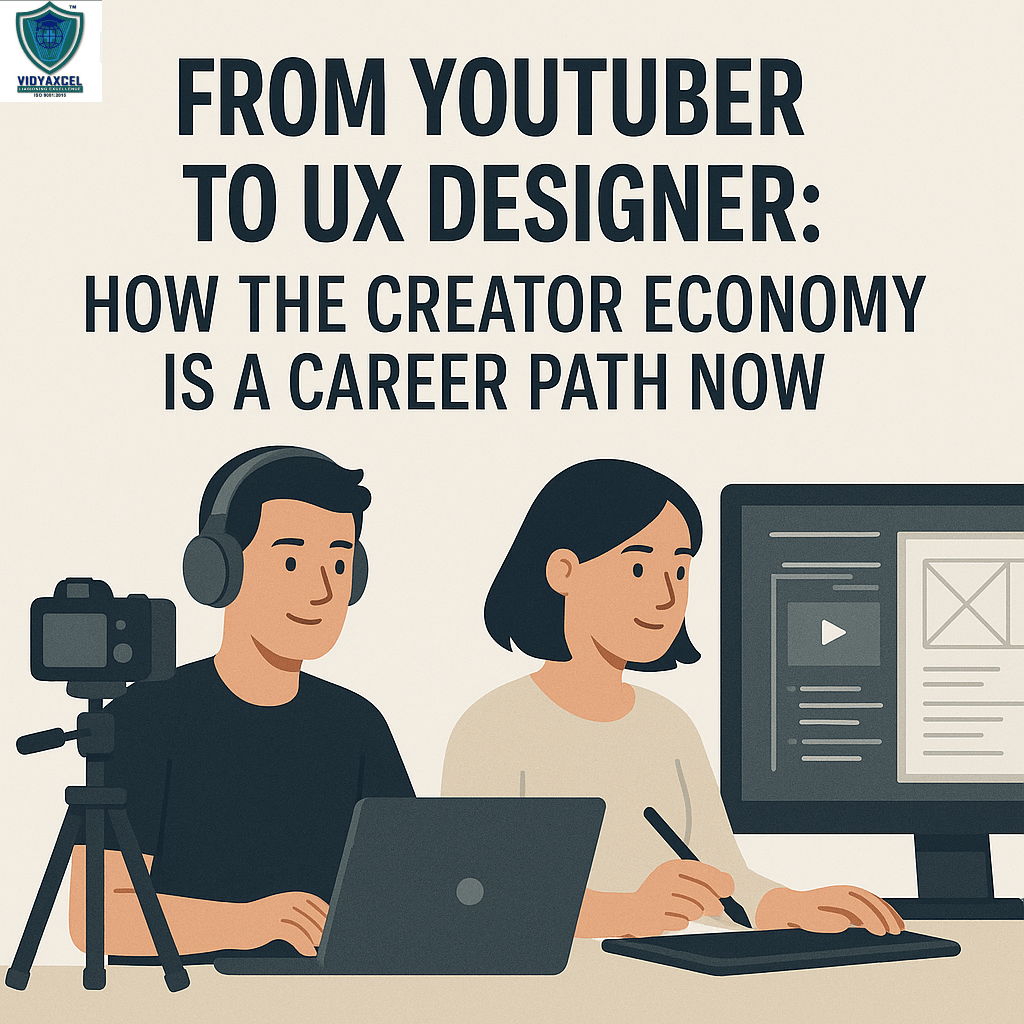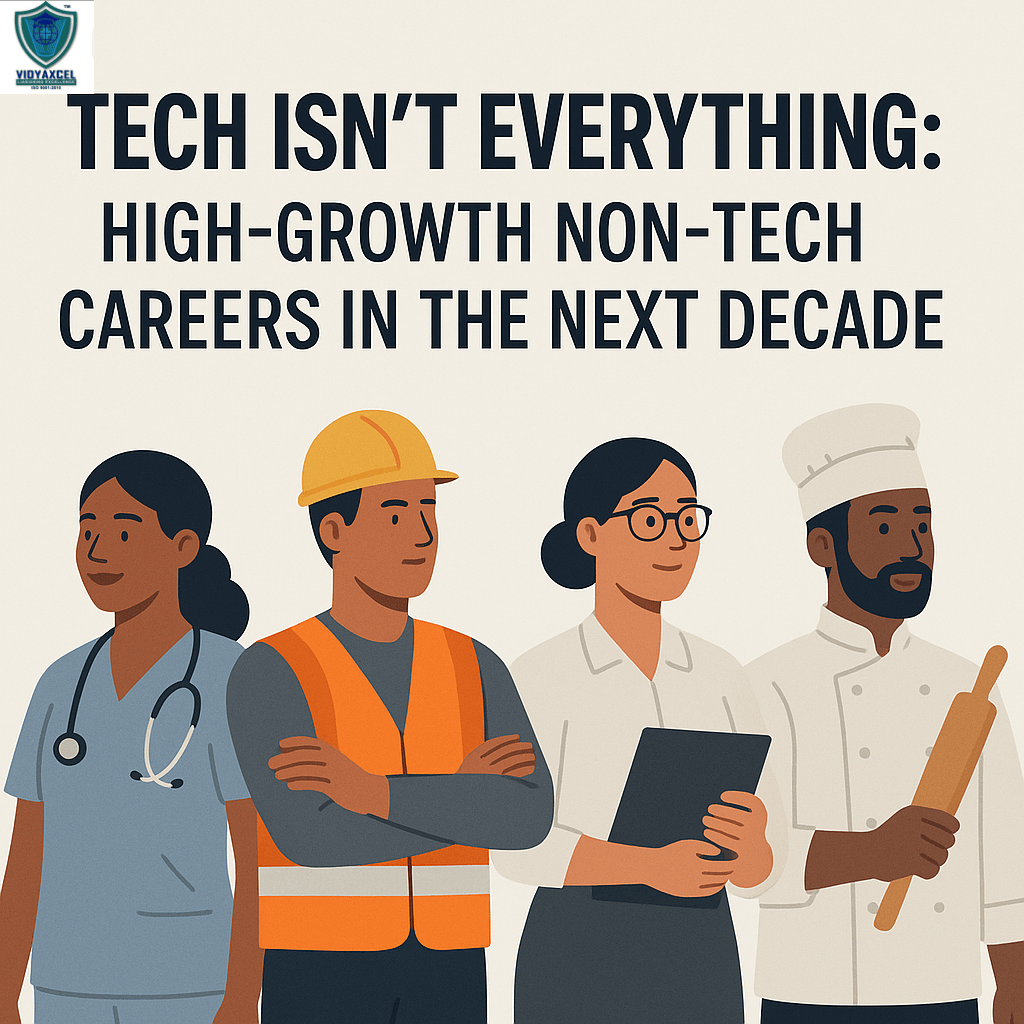Blog Details

02Aug
How Web3, Blockchain, and the Metaverse Will Shape Tomorrow’s Jobs
We’re witnessing the rise of technologies that promise to redefine the way we live, work, and interact. Web3, Blockchain, and the Metaverse are no longer just buzzwords—they’re the foundation of a rapidly evolving digital economy. As these technologies become mainstream, they are giving birth to new industries, reshaping existing careers, and demanding a new generation of digitally literate, innovative thinkers.
For students, young professionals, and parents trying to understand the future job landscape, this blog will decode how these technologies will shape tomorrow’s jobs, what skills will be in demand, and how to prepare for them.
We’re witnessing the rise of technologies that promise to redefine the way we live, work, and interact. Web3, Blockchain, and the Metaverse are no longer just buzzwords—they’re the foundation of a rapidly evolving digital economy. As these technologies become mainstream, they are giving birth to new industries, reshaping existing careers, and demanding a new generation of digitally literate, innovative thinkers.
For students, young professionals, and parents trying to understand the future job landscape, this blog will decode how these technologies will shape tomorrow’s jobs, what skills will be in demand, and how to prepare for them.
2. The Job Market Shift: From Traditional to Tech-Infused Roles
As these technologies evolve, they’re giving rise to entirely new career categories, while also transforming traditional roles. Some key trends include:
-
Rise of remote-first workplaces using immersive VR offices.
-
Increased demand for digital ownership and verification experts (NFTs, smart contracts).
-
Emphasis on tokenomics and decentralized finance (DeFi).
-
Explosion of virtual design and architecture roles for digital spaces.
3. Emerging Career Paths in Web3, Blockchain & Metaverse
Let’s explore some of the key roles that will dominate the Web3-powered future.
🔹 a. Blockchain Developer
-
Role: Build decentralized applications, smart contracts, and blockchain protocols.
-
Skills: Solidity, Rust, Ethereum, cryptography, distributed systems.
-
Industries: Finance, supply chain, healthcare, gaming.
🔹 b. Smart Contract Auditor
-
Role: Ensure security and efficiency in blockchain-based smart contracts.
-
Skills: Code analysis, cybersecurity, programming logic.
-
Why It Matters: Prevents millions in potential hacking losses.
🔹 c. NFT Strategist/Manager
-
Role: Design, market, and manage NFT projects for art, music, gaming, and branding.
-
Skills: Branding, marketing, blockchain basics, community building.
🔹 d. Metaverse Architect / 3D World Designer
-
Role: Build virtual environments—offices, stadiums, schools—in the Metaverse.
-
Skills: Unity, Unreal Engine, 3D modeling, UX design.
🔹 e. Digital Asset Lawyer / Blockchain Legal Advisor
-
Role: Advise on smart contracts, crypto regulations, digital property rights.
-
Skills: Legal knowledge + blockchain literacy.
🔹 f. Web3 Community Manager
-
Role: Build and engage online communities on Discord, Reddit, etc.
-
Skills: Communication, content, analytics, DeFi/NFT knowledge.
🔹 g. Token Economist (Tokenomics Expert)
-
Role: Design digital currencies with long-term value and utility.
-
Skills: Economics, game theory, market modeling.
🔹 h. Metaverse Event Manager
-
Role: Host virtual concerts, product launches, exhibitions.
-
Skills: Event planning, tech fluency, XR platforms.
4. Future Skills That Will Be in High Demand
Here are the key skills students and professionals should develop to stay future-ready:
⚙️ Technical Skills
-
Blockchain development (Solidity, Web3.js)
-
Virtual reality (VR/AR) design
-
Data privacy and encryption
-
Game design & development
-
Python, JavaScript, and Rust programming
🧠 Cognitive and Creative Skills
-
Critical thinking & problem-solving
-
Ethical reasoning in digital spaces
-
Digital storytelling for immersive media
-
Visual and spatial thinking
🤝 Soft Skills
-
Remote collaboration
-
Adaptability to fast tech shifts
-
Multidisciplinary thinking
-
Global communication across time zones
5. Industry-Wise Adoption of Web3 & Metaverse
🎮 Gaming & Entertainment
-
GameFi (Gaming + DeFi)
-
Virtual collectibles and in-game tokens
-
Immersive concerts and social events
🛍️ Retail & Fashion
-
Virtual showrooms
-
Digital wearables
-
Blockchain for supply chain traceability
🏥 Healthcare
-
Secure patient records on blockchain
-
VR for medical training
-
Telehealth in the Metaverse
🏫 Education
-
Decentralized learning platforms (Ed3)
-
Virtual classrooms with real-time interaction
-
Credentialing via NFTs
🏦 Finance
-
DeFi (Decentralized Finance)
-
Crypto trading and staking
-
Blockchain-based microloans
6. How Students Can Prepare for These Jobs
📘 a. Start Early with Foundational Learning
-
Learn programming basics (Python, JavaScript).
-
Understand how the internet works and build digital literacy.
-
Get comfortable with platforms like Unity or Roblox Studio for early 3D design.
🧪 b. Enroll in Blockchain and Metaverse Courses
-
Platforms like Coursera, Udemy, edX offer beginner to advanced content.
-
Certifications like Certified Blockchain Developer or Metaverse Specialist add credibility.
💼 c. Join Web3 Internships and Hackathons
-
Gitcoin, ETHGlobal, and Metaverse summits offer great exposure.
-
Build a GitHub portfolio of smart contracts or virtual design projects.
🧠 d. Learn Financial Literacy and Crypto Basics
-
Understand cryptocurrency, DeFi, staking, wallets, and security.
-
Study tokenomics and real-world use cases.
7. The Parent's Role in Future-Proofing Careers
Parents can play a vital role in helping their children navigate this futuristic landscape:
-
Encourage curiosity in new technologies instead of fearing them.
-
Promote digital safety practices early—crypto scams are real.
-
Invest in digital tools and courses, even if they seem “gaming-based.”
-
Connect with mentors and career counsellors who understand Web3 & AI-driven careers.
8. Challenges and Ethical Considerations
While the future is exciting, there are several issues we must address:
-
Job displacement due to automation and AI.
-
Environmental impact of blockchain mining (especially Proof-of-Work).
-
Digital addiction in immersive virtual worlds.
-
Data privacy in decentralized systems.
-
Legal gray areas around crypto ownership, NFTs, and intellectual property.
These are not just technical challenges—they are societal. We need tech-savvy digital citizens who are also ethically aware.
Conclusion
Web3, Blockchain, and the Metaverse are not just trends—they are ecosystems that will define how we work, earn, and interact. As the lines between the physical and digital blur, preparing students today with the right mix of skills, mindset, and exposure becomes more important than ever.
Career counselling, guided by forward-thinking educators and supportive parents, must evolve with these changes to help the next generation thrive, not just survive in the future of work.
FAQs
1. Is Web3 just a tech trend or a long-term career path?
Web3 is evolving into a full-fledged digital economy. While still maturing, its applications in finance, identity, gaming, and education point to sustainable, long-term opportunities.
2. Do students need to know coding to get into blockchain or metaverse careers?
Not necessarily. While developers and engineers are in high demand, there are non-technical roles like project management, legal advisory, content creation, marketing, and design.
3. What is the minimum age to start learning about Web3 or crypto?
Students as young as 13–14 years can start learning blockchain basics, through gamified platforms or intro courses. Full-fledged work usually starts post-18.
4. How can parents ensure their kids are safe while exploring the metaverse or crypto?
-
Monitor platforms used (e.g., Decentraland, Roblox).
-
Educate about crypto scams and phishing.
-
Encourage transparent communication and limited screen time.
-
Use parental controls and promote privacy hygiene.
5. Will traditional careers become obsolete due to Web3 and automation?
Not obsolete, but they will evolve. For example, finance roles may require blockchain literacy; architects may need to design in virtual spaces. Upskilling and adaptability are key to staying relevant.
Our Office: West Bengal, Maharashtra & Delhi.
For More Infomation about admission in Medical, Engineering, Management & Study in Overseas Details.
View Current Study Overseas, Medical, Engineering & Management Admission Details Video.




